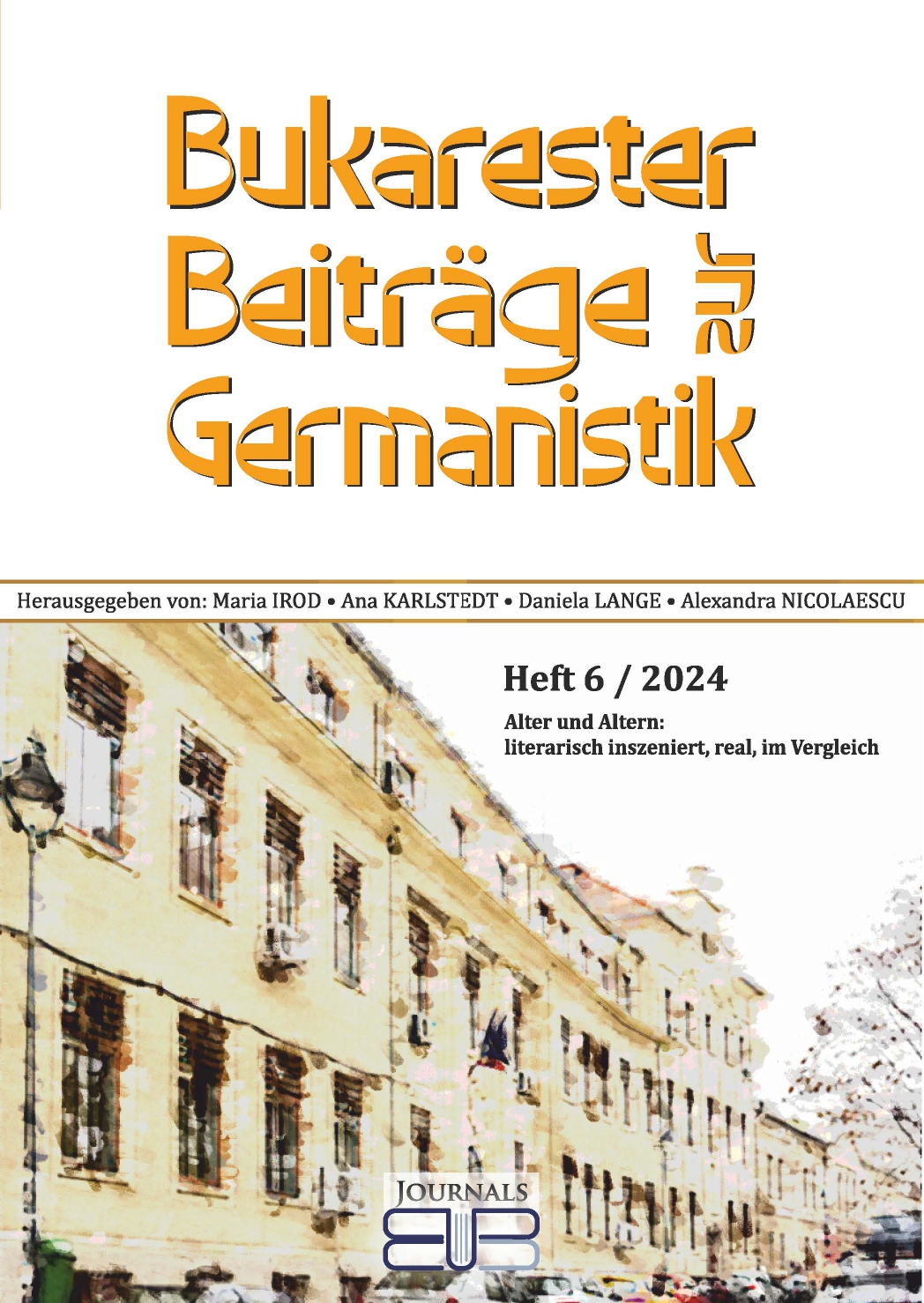„...dieweil er aber alt und schwach ist”. Alter und Altern in den siebenbürgisch-sächsischen Urkunden aus dem 15.-17. Jahrhundert
„...dieweil er aber alt und schwach ist” /‘...but because he is old and weak’. Age and ageing in Transylvanian Saxon documents from the 15th to the 17th century.
Author(s): Ileana-Maria RatcuSubject(s): Language studies, Language and Literature Studies, Sociology, Gerontology, Societal Essay
Published by: Editura Universităţii din Bucureşti
Keywords: Transylvania; German-language documents; age; illness; swear words;
Summary/Abstract: The aim of this article is to trace the phenomenon of age and ageing as it is reflected in the German-language documents from Transylvania. Four directions can be recognized. On the one hand, ageing is associated with frailty, weakness and illness, so that the elderly must be supported by family and descendants. On the other hand, old age is associated with experience, wisdom and tradition. Sometimes “old” is only used as an identifier in comparison to other people names. Another aspect is society’s disparaging attitude towards older people, which is reflected in the documents in swear words containing the adjective “old”.
Journal: Bukarester Beiträge zur Germanistik (BBG)
- Issue Year: 2024
- Issue No: 6
- Page Range: 179-188
- Page Count: 10
- Language: German

